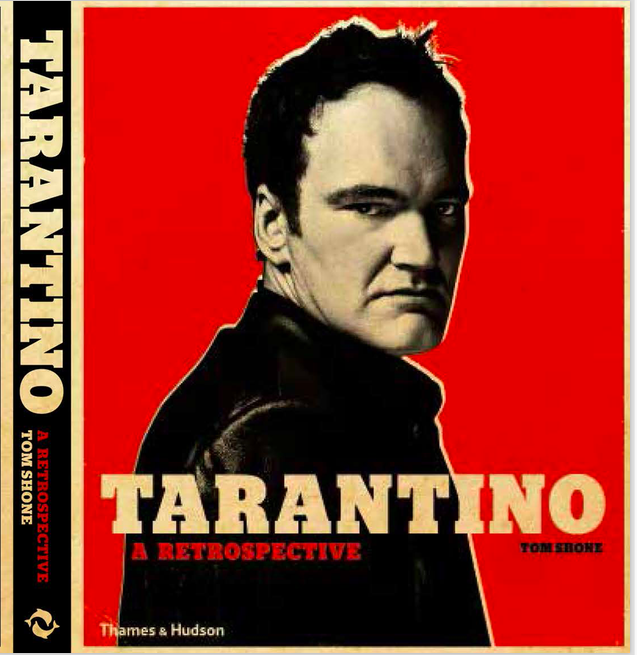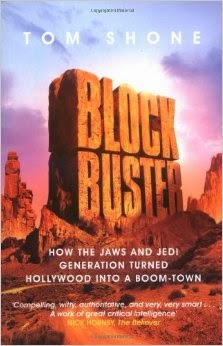 There may be greater directors at work today but none can hold a candle to Spielberg when he was in the twenties and early thirties: Jaws, Close Encounters of the Third Kind, Raiders of the Lost Ark, E.T — is there a greater quartet in the history of popular cinema? Spielberg is the great carny poet of American cinema, with the soul of an artist and one of those shallow, tin-man tickers that just happens to beat time with the hearts of millions. Even the gaps between those films seem to breath their own significance, the seat-of-your-pants improv of Raiders loosening Spielberg up to shoot his most personal film, E.T. The Extra-terrestrial; the raucous shock of Jaws cleaving to the hushed wonder of Close Encounters, almost as if Spielberg had listened to the expectant hush that descended on the world after Jaws, and then turned that hush into a movie.
There may be greater directors at work today but none can hold a candle to Spielberg when he was in the twenties and early thirties: Jaws, Close Encounters of the Third Kind, Raiders of the Lost Ark, E.T — is there a greater quartet in the history of popular cinema? Spielberg is the great carny poet of American cinema, with the soul of an artist and one of those shallow, tin-man tickers that just happens to beat time with the hearts of millions. Even the gaps between those films seem to breath their own significance, the seat-of-your-pants improv of Raiders loosening Spielberg up to shoot his most personal film, E.T. The Extra-terrestrial; the raucous shock of Jaws cleaving to the hushed wonder of Close Encounters, almost as if Spielberg had listened to the expectant hush that descended on the world after Jaws, and then turned that hush into a movie.
Anyone expecting anything like that from Super 8 — J J Abrams attempts a Vulcan mind-meld with cinema's great dauphin prince — will spend much of the movie with their fingers in their ears: the movie begins with a train crash as crunchy and spectacular as they come, and then gets crunchier from there, although the flying corvettes had a silent, Keatonesque charm. Abrams is a keen, diligent student, particularly in his use of heraldic detail — a departure of dogs in the area, then car engines, striking exactly the right tone of indirect, prosaic spookiness. He knows how to goose us. His movies (Mission Impossible 3, Star Trek) and TV shows (Alias, Lost) demonstrate an unfakeable feel for the ripples and rip-tides that govern a mass audience; in the era of Michael Bay and the pseudo-popularity of franchise filmmaking, that is no small thing. In the first 45 minutes or so, Abrams maps out the Spielbergiana with the glee of a kid who has the run of a theme-park at night. He's Charlie loose in the Chocolate Factory. Group of friends shooting a home movie, check. Sadness at home involving the absence of a parent, check. Bike-riding, check. The use of baroque intra-teen insults, check. Extra-terrestrial in the backyard, check. A sinister evacuation of the surrounding area by the United States Army, check. We even get anamorphic lens flares — a nod to the photography of Spielberg's Oscar-winning cinematographer on Close Encounters, Vilmos Zsigmond — and a touching use of the word "turkey," an insult sorely missing from the American vernacular since Richard Dreyfuss hurled it after an unhelpful motorist in 1977.
Can you make a movie entirely out of your memory of another man's movies? Abrams' enthusiasm for its source material is infectious, although one of the lesser dividends of making an hommage to a filmmaker as popular as Spielberg is that it condemns ordinary moviegoers to the accursed existence of film critics. You sit there, crouched in the dark, collecting motifs, comparing riffs, making furious mental notes so that you can share them with everyone afterwards. Only once the alien beastie started racking up a body count did I feel properly pulled into my seat, as the familiar sensation of losing myself in the movie take a hold, not least because it laid to rest my biggest query about Abrams aliens, namely: friend or foe? In Close Encounters Spielberg famously looked to the heavens and found, in a blinding benediction of light, a set of aliens that, for all their childlike limbs and foetal faces, occupied a position in the human psyche closer to that of galactic parent, responding to the bit of Dreyfuss that longed to shuck his adult responsibilities and be a big kid again: if there's a higher intelligence at work in the universe, then why turn up to your job on Monday morning? Spielberg has a genius for tugging the heavens closer to home. There was an E.T, shaped hole in Elliott's heart before E.T. showed up — the one left by his father — and while Abrams follows the template, depriving his hero, young Jackson Lamb (Kyle Chandler) of his mother in an industrial accident, the massive, multi-fanged beast that turns up in his backyard, tearing gas station clerks to shreds, bears scant resemblance to mom. There's no denying the pall of disappointment that hangs over the final act of Super 8, as childhood longing drains away to reveal just another monster flick. The monster gets a Twilight-Zoneish backstory involving area 51, where government experimentation turned a good alien bad, when all he wants is a kind word and the chance to return home, like E.T., a twist that gives even the other kids whiplash: "What was that?"
There's a fair amount of this in Super 8. Abrams is adept at staging Spielberg-sized spectacle — who can't these days? — but his facility with manipulating emotion feels merely serviceable, the work of a diligent student, rather than a true violinist. Spielberg's aliens came from the very heart of him — they were as personal as Fellini's whores — whereas Abrams's aliens just come from watching old Spielberg movies, and his sense of topography sucks — characters are routed and rerouted, paths criss-crossed at will. The strings of this puppeteer are all too visible. At times Super 8 seems less a Spielberg hommage, than the most technically accomplished Goonies movie you ever saw — a reprieve from the summer doldrums, but never quite amounting to a full transport of delight. There is certainly much to enjoy here, not least Elle Fanning's willowy, sunflower-stualk presence and Joel Courtney's round, Charlie-Brownish moon-face. "If they're in love the audience won't want them to die," says the budding auteur behind the zombie flick they are making, a piece of advice that works its snub-nosed magic here, too. I was roused by Super 8, jumped out of my seat a couple of times, and did not want to see the two leads bite the dirt, but my heart-light remained only falteringly lit. B





































